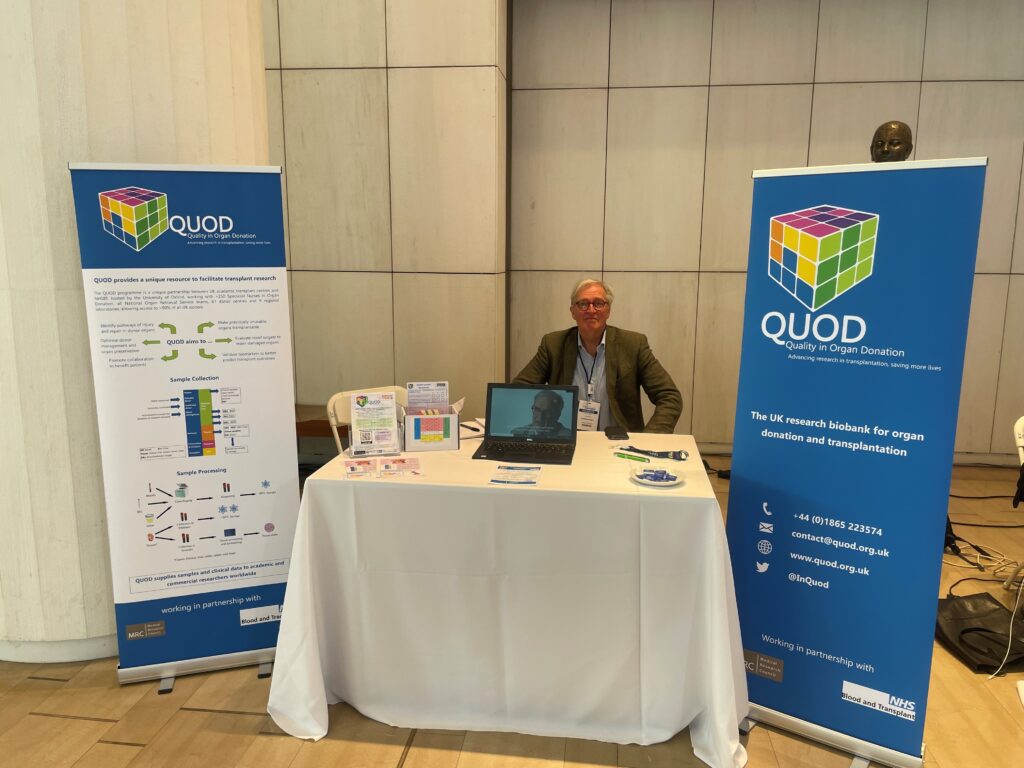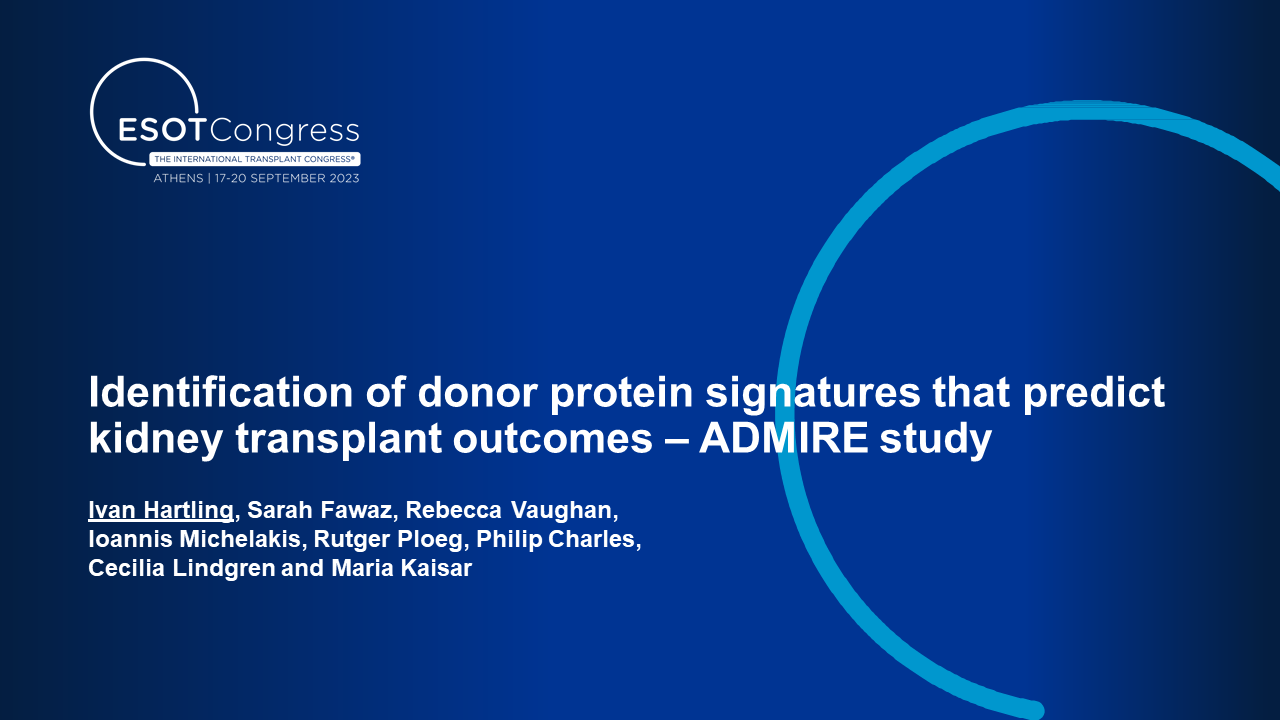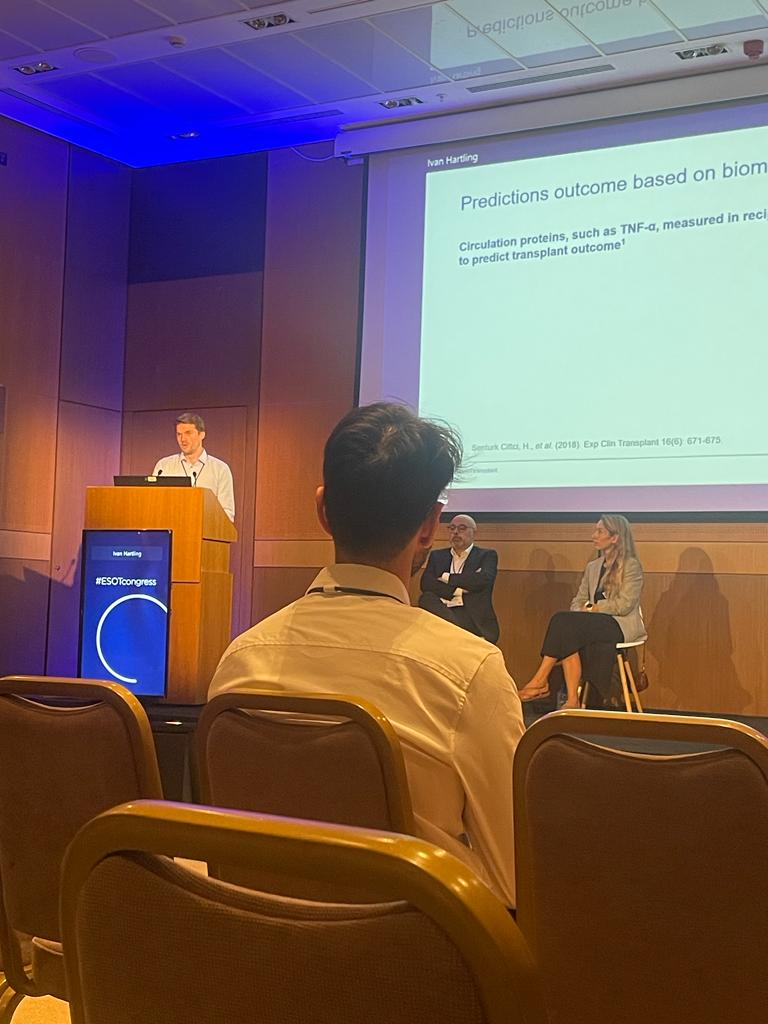QUOD attended the ESOT Congress in Athens, Greece from 17th-20th September. This biennial congress brought together over 2800 attendees from across the world and we were able to meet and connect with a wide variety of delegates from our exhibition stand. Importantly, research using QUOD samples was presented in over 10 oral presentations and posters during the congress.

Out of more than 1000 abstracts that were presented, the Liver Atlas study, carried out by Hussain Abbas at the University of Oxford using QUOD liver samples, was included as one of only 11 abstract presentations as a ‘Scientific programme highlight’ in the ESOT Congress review: “Development of a novel ‘Liver Atlas’ to predict pre-retrieval steatosis may help to avoid discarding liver tissue – A novel, large-scale ‘Liver Atlas’ developed in the United Kingdom supported the use of pre-retrieval steatosis predictors and routine retrieval biopsy to avoid unnecessary viable liver discards”. To find out more, see page 16 of the ESOT Congress 2023 Review.
Dr Ivan Hartling, from the Big Data Institute at the University of Oxford, attended the congress to present his work using QUOD samples. Please see his summary below:
The European Society for Organ Transplantation (ESOT) Congress was held in Athens, Greece from 17th – 20th September 2023. Additionally, on Saturday 16th, before the official start of the congress, there was an ESOT Science Day that featured a great series of basic science talks. The congress theme, “Disruptive Innovation, Trusted Care,” emphasized how innovation can improve access to transplantation.
Dr Maria Kaisar encouraged all our team members to submit abstracts to ESOT and travel to Athens. We were delighted that all our abstracts were selected for oral presentations and we were well represented at the congress. We presented a series of abstracts using QUOD samples to investigate how proteins in kidney donors associate with and predict kidney function post-transplant. Dr Philip Charles presented his work on “Age-Modulated Proteomic Signatures Of Donor Kidney Biopsies Associate With Below-Median 12 Month Outcomes”, Dr Sarah Fawaz presented “Circulating TNF-alpha levels in deceased donors associate with post transplant function in Kidney Transplantation”, Dr Ioannis Michelakis presented “TNF-α pathway activation on deceased kidney donors: a critical mediator of unfavourable post-transplant outcome”, and Rebecca Vaughan presented two abstracts, one titled “Changes In Endogenous Peptides In DCD Kidney Biopsies Associate With Prolonged Warm Ischaemia” and the other “Biological Injury Associated With Deceased Donor Pathways Reflect Differences In The Donor Kidney Proteome And Cellular Stress Responses”.


I was honoured to have my abstract, “Identification of donor protein signatures that predict kidney transplant outcomes – ADMIRE study,” accepted as a late-breaking abstract. Both Dr Michelakis and myself presented in an early Monday morning session. Despite the early hour, the audience was alert, attentive, and asked many questions.
As it was my first in-person conference in a few years, I was thrilled to have the chance to network with other researchers. The congress hosted a delightful wine and cheese evening, and throughout the event, attendees could mingle around the many industry and partner booths, including the QUOD booth staffed by Dr Sarah Cross and Philippa Wren. Overall, the congress was a great success, with excellent talks covering all aspects of transplantation. I am looking forward to the next ESOT congress, which will be held in London from June 29 to July 2, 2025.
